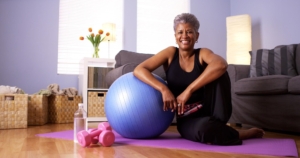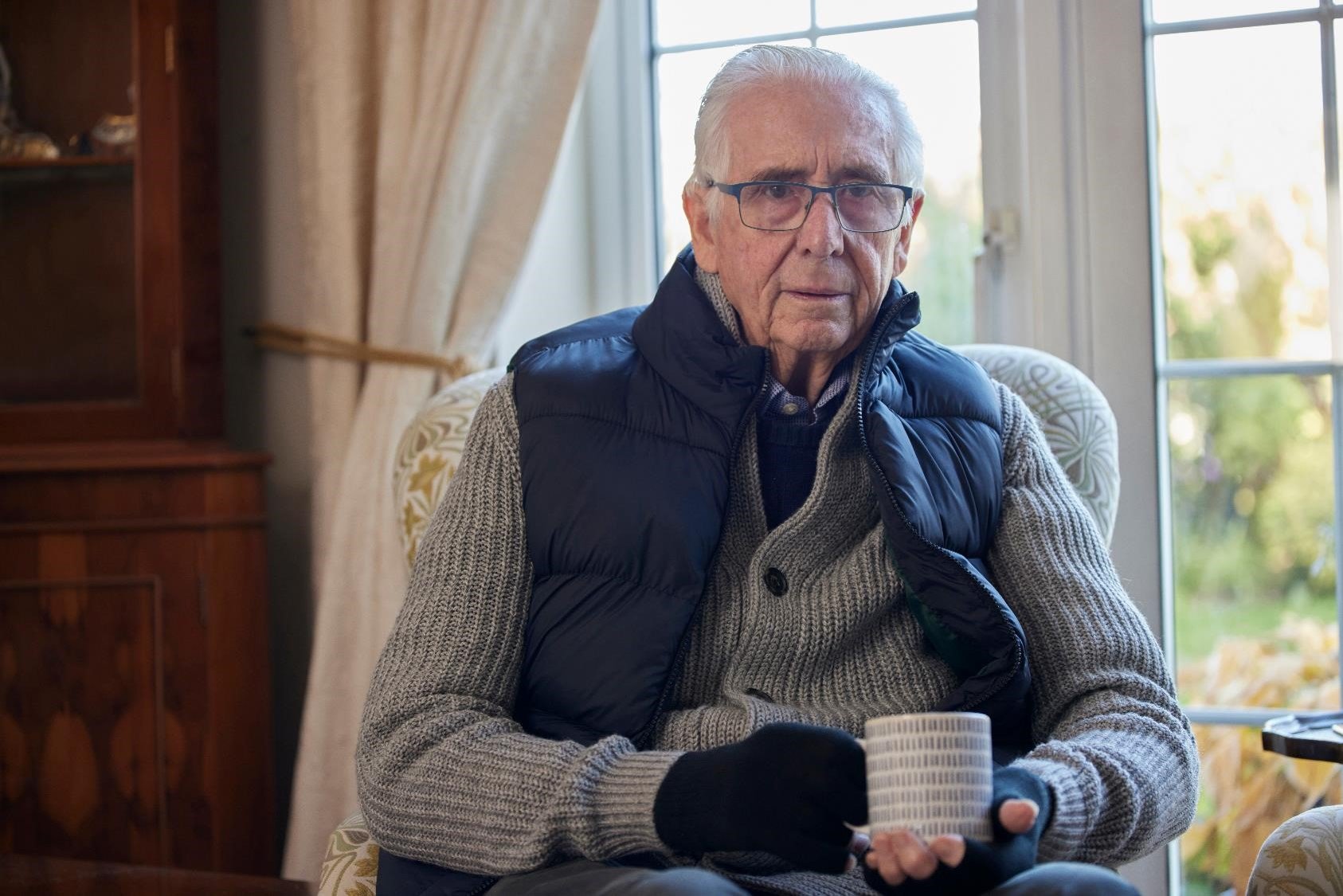His grandsons think he’s a turtle.
Now, his head isn’t pulled back inside a shell, but Grandpa sleeps with his green wool blanket pulled up over his head. There’s only a small opening for his nose and mouth. He says it’s to keep his head warm at night, as there’s not much hair there. But likely, it’s more than just thinning hair. As we age, our bodies undergo various changes which can contribute to being more sensitive to cold. Here are some of those changes that can cause seniors to feel cold more.
Our Metabolism Slows Down
Metabolism is the body’s process of converting food to energy. One effect of aging is that our metabolism tends to slow down which makes us more susceptible to feeling chilly. As Today’s Caregiver explains, “Our aging bodies are not capable of generating enough heat to help maintain the normal temperature of 98.6 degrees.”
Take Action:
- Regular exercise is crucial for maintaining a healthy metabolism.
- Eating a well balanced diet is essential for supporting metabolism.
- Dehydration can negatively impact metabolism, so we need to make sure we drink enough water throughout the day.
- Aim for seven to nine hours of sleep per night to support optimal metabolic function.
Decreased Circulation
Aging also affects the cardiovascular system, leading to decreased blood flow. Further, our blood vessels narrow and lose elasticity, reducing circulation. Proper circulation is necessary for distributing heat throughout the body and maintaining a consistent temperature. This diminished blood flow can lead to the perception of feeling cold.

Take Action:
- Engaging in regular physical activity is one of the most effective ways to enhance circulation.
- Periodically elevating your legs while sitting or lying down can assist in improving blood circulation.
- A well-balanced diet rich in fruits, vegetables, whole grains and lean protein provides essential nutrients that support cardiovascular health.
- Dehydration can contribute to poor circulation, so we need to prioritize drinking an adequate amount of water throughout the day.
- Quitting smoking can lead to improvements in circulation.
- Chronic stress can contribute to circulatory problems. Prayer and meditation, deep breathing exercises, and relaxation techniques can help manage stress and promote better circulation.
Thermoregulation Challenges
Another reason why seniors feel cold more is thermoregulation, the body’s ability to regulate temperature. It becomes less efficient as we age. This can make it harder to adapt to temperature changes leading to a heightened sensitivity to cold environments.

Take Action:
- Adequate hydration is essential for regulating body temperature. We need to drink water regularly, even if we don’t feel thirsty.
- Dress in layers, this allows for better insulation.
- Maintain a comfortable indoor temperature.
- Regular physical activity helps improve cardiovascular health and enhances the body’s ability to regulate temperature.
- Quality sleep is essential for overall health, including temperature regulation. (read more: How Aging Affects Sleep And What You Can Do About It!)
Other Factors
In addition to the metabolism, circulation, and thermoregulation changes which are a normal part of aging, there are many other factors that may affect our sensitivity to cold.
Thinning Fat Layers Beneath the Skin
These fat layers are akin to insulation, helping us conserve heat. This decline in fat tissue can make us more vulnerable to temperature changes, causing a heightened sense of coldness.
Medical Conditions
Several medical conditions, including anemia, kidney disease, diabetes, and thyroid problems can all be reasons for our perception of feeling cold.
Medication Side Effects
Certain medications can also be responsible for feeling cold. For example, some prescriptions taken to lower blood pressure can reduce blood circulation to your extremities, resulting in cold hands and feet.
Did you notice the common threads among the “take action” steps above? Regular exercise, good hydration, a healthy diet and adequate sleep are important factors in combating metabolism, circulation, and thermoregulation problems! Often, lifestyle changes you make can reduce the perception of being cold.
Of course, you should talk with your doctor before starting a new exercise program or overhauling your diet. Consulting with doctor can also help you identify and understand if your intolerance to cold is related to a medical condition or the side effects of your medications.
A Caregiver can help, too. From assistance in dressing in layers to encouraging water intake and helping in the preparation of healthy meals, Sunlight’s in-home senior care in Omaha, Lincoln and Des Moines can help you achieve your goals!






